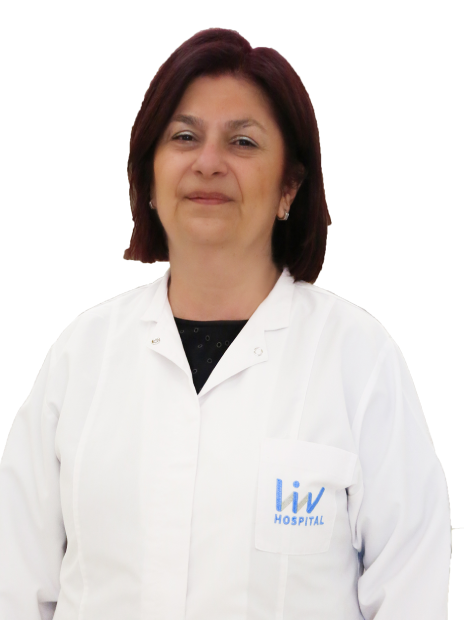Understanding Autism Spectrum Disorder and Asperger Syndrome
Autism spectrum disorder (ASD), often referred to as autism, is a neurodevelopmental condition characterized by a wide range of autism signs that affect social interaction, communication, and behavior. The term “spectrum” reflects the diversity in how autism appears—every person experiences it differently, and recognizing this individuality is essential.
Common autism signs include difficulties in social communication, repetitive behaviors, limited interests, and challenges in adapting to change. Some individuals may also show heightened sensitivity to sounds, lights, or textures. The intensity and combination of these symptoms vary from one person to another, making early identification and intervention critical.
Asperger Syndrome, now considered a subtype within the autism spectrum, presents with milder autism signs, particularly regarding language and cognitive development. People with Asperger Syndrome often have normal or above-average intelligence and may develop deep interests in specific topics, though they can still face social and communication challenges.
Understanding these autism signs helps promote early diagnosis and appropriate support, improving quality of life and social adaptation. For comprehensive evaluation and personalized treatment, Liv Hospital provides expert care for individuals on the autism spectrum.

What Is Autism?
A neurodevelopmental disorder known by many names as autism spectrum disorder, it is typified by a variety of social, communicative, and behavioral difficulties. The word "spectrum" highlights the fantastic range of ways that autism presents itself in different people. Since no two autistic people are exactly alike, it is critical to recognize and accept this diversity.
Asperger Syndrome is one of the many developmental disorders that fall under the umbrella of autism; in fact, it is now recognized as a subtype of it. Less severe symptoms are frequently displayed by individuals with Asperger syndrome, particularly when it comes to language and cognitive development.
Autism Spectrum and ASD Meaning
The term "autism spectrum disorder," or ASD, is broad and includes many different types of autism. The spectrum acknowledges that there is no one-size-fits-all cause for autism; instead, it is the result of a complex interaction between brain development, environment, and heredity. Each individual may experience mild, moderate, or severe it symptoms, and they may manifest in different ways. Some autistic people are exceptionally gifted in specific fields, like music, art, or math.
It is helpful to investigate the features of each distinct form of it to gain a better understanding of the difference between autistic and Asperger symptoms. You can contact Liv Hospital experts in Istanbul for more information on it and treatment plans available in Turkey!
High-Functioning Autism
High-Functioning Autism (HFA) is a term used to describe individuals on the it spectrum who have above-average intellectual abilities. The symptoms and traits of HFA and Asperger Syndrome closely overlap, so these terms are often used interchangeably. Like those with Asperger Syndrome, people with HFA commonly experience social challenges, repetitive behaviors, and intense interests.

Symptoms of Asperger Syndrome
• Limited eye contact: Individuals may struggle to maintain eye contact during conversations, which can sometimes be mistaken for disinterest.
• Difficulty with social interactions: Challenges in understanding unwritten social rules often make it hard to form and sustain friendships.
• Repetitive behaviors and routines: A strong preference for routine and resistance to change are common characteristics.
• Intense focus on specific interests: Many individuals develop deep, highly specialized interests and may become extremely knowledgeable in those areas.
• Advanced language skills: Despite social difficulties, they often possess sophisticated language abilities and can be exceptionally articulate.
Children's Autism Symptoms
Early recognition and support for children with autism begin with understanding their symptoms. Common signs of autism in children include:
• Delays in speech and language development: Many autistic children may have difficulty speaking or show limited interest in communicating with others.
• Minimal or absent social interaction: Children with it often struggle to play with peers or make eye contact.
• Repetitive behaviors: Common repetitive actions include hand flapping, spinning objects, or strict adherence to routines.
• Heightened sensory sensitivity: Certain textures, bright lights, or loud noises may be distressing for autistic children.
• Reduced emotional reciprocity: Children on the it spectrum might seem emotionally detached and may have difficulty recognizing or responding to others' emotions.
Delays in speech and language development: A lot of autistic kids can have trouble speaking or show little interest in interacting with others.
Minimal or nonexistent social interaction: Kids diagnosed with an it spectrum disorder may find it challenging to play with other kids their age or to make eye contact.
Repetitive actions: Children with it frequently exhibit hand flapping, spinning objects, and a strict adherence to routines as examples of repetitive behaviors.
High sensory sensitivity: Autistic children may find certain textures, bright lights, or loud noises upsetting.
Lack of emotional reciprocity: Children diagnosed with it spectrum disorders may appear emotionally detached and may struggle to recognize and respond to the emotions of others.

What Causes Autism?
The exact causes of autism are still being researched, but it is likely that both genetic and environmental factors contribute to its development. Several potential risk factors have been identified, including:
• Genetics: A family history of autism or other developmental disorders may increase an individual's risk of developing it.
• Environmental factors: Exposure to certain medications, infections, or toxins during pregnancy may play a role in the onset of autism.
• Brain development: Some individuals with it show differences in brain structure or function.
• Immune system factors: Ongoing research is examining possible links between autism and immune system functioning.
Environmental Factors: Autism may develop as a result of exposure to certain drugs, infections, or toxins during pregnancy.
Brain Development: Some autistic individuals may have differences in the structure or function of their brain.
Immunological Factors: Studies continue to explore the possible connection between autism and immune system functioning.
Autism Care at Liv Hospital
Liv Hospital provides comprehensive and compassionate care for individuals with autism through a multidisciplinary approach designed to support both children and their families. The hospital’s expert team includes pediatric neurologists, child psychiatrists, developmental specialists, speech therapists, occupational therapists, and psychologists who work together to create personalized evaluation and treatment plans.
At Liv Hospital, autism assessments follow internationally recognized standards, ensuring accurate diagnosis and early identification of developmental challenges. Early intervention is strongly emphasized, as timely support can significantly improve communication skills, social interaction, learning ability, and daily functioning.
Therapies offered at Liv Hospital may include individualized behavioral programs, speech and language therapy, sensory integration therapy, and family education. These interventions help children build essential skills, manage sensory sensitivities, and develop more effective communication methods. Families are guided throughout the process, receiving continuous education and emotional support.
With state-of-the-art facilities, experienced specialists, and a patient-centered approach, Liv Hospital aims to enhance quality of life and long-term developmental outcomes for children on the autism spectrum.
* Liv Hospital Editorial Board has contributed to the publication of this content .
* Contents of this page is for informational purposes only. Please consult your doctor for diagnosis and treatment. The content of this page does not include information on medicinal health care at Liv Hospital .
For more information about our academic and training initiatives, visit Liv Hospital Academy
Frequently Asked Questions
What is Autism Spectrum Disorder (ASD)?
Autism Spectrum Disorder is a neurodevelopmental condition that affects communication, social interaction, and behavior, with symptoms varying from mild to severe.
What is the difference between Autism and Asperger Syndrome?
Asperger Syndrome is a milder form of Autism Spectrum Disorder, typically involving strong language and cognitive skills but challenges in social interaction and repetitive behaviors.
What causes Autism?
Autism is believed to result from a combination of genetic, environmental, and neurological factors that affect brain development.
At what age can Autism be diagnosed?
Autism can often be detected by age two or three, although signs may appear earlier. A specialist should conduct developmental and behavioral assessments for diagnosis.
Can individuals with Autism live independently?
Yes, many individuals with Autism, especially those with high-functioning Autism or Asperger Syndrome, can lead independent lives with proper support and therapy.
What treatments are available for Autism?
Treatments include behavioral therapy, speech and occupational therapy, social skills training, and individualized education programs.
Where can I get Autism treatment in Turkey?
You can contact Liv Hospital in Istanbul for comprehensive Autism diagnosis, support, and therapy programs designed to meet each patient’s individual needs.



